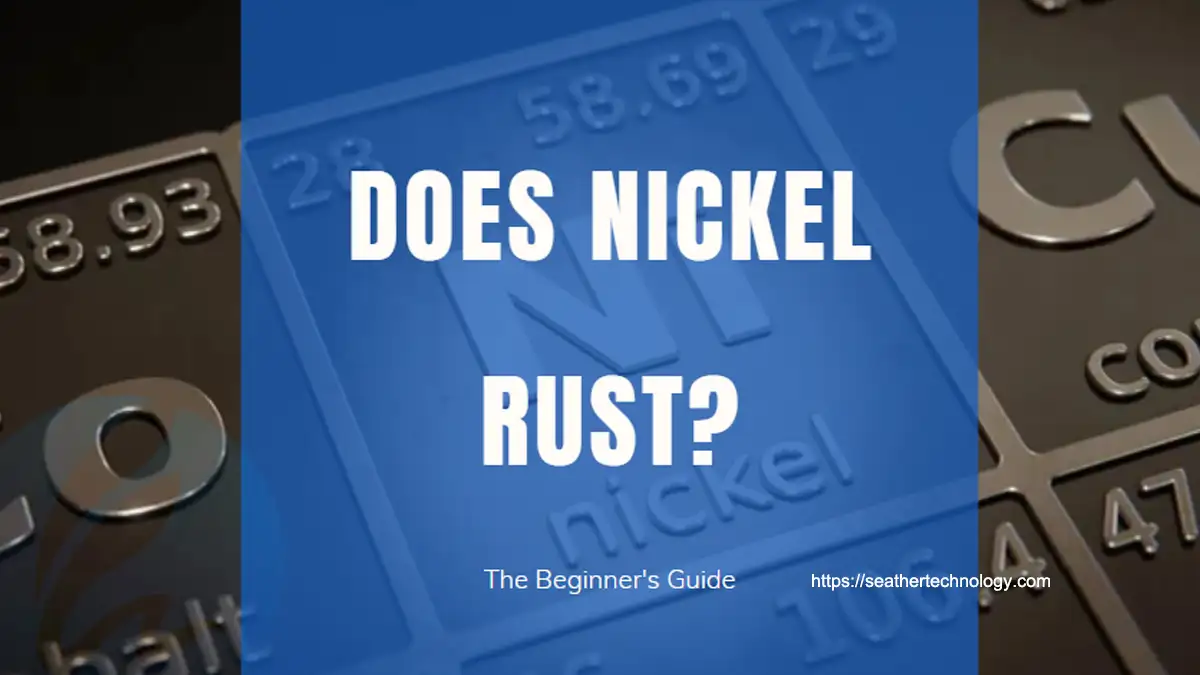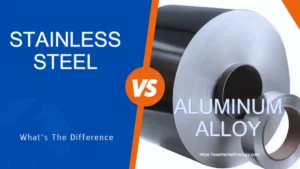Nickel does not contain iron; therefore, it will not rust.
Nickel has excellent corrosion resistance durability and does not rust easily in most environments.
Nickel does not react with oxygen and other elements in the environment to form an oxide layer, so it is very resistant to oxidization.
Chromium and nickel are used in many alloys to get the desired corrosion resistance and strength of the nickel-based superalloys.
In addition to its greater corrosion resistance, nickel is widely utilized in parts exposed to saltwater.
However, if exposed to extremely harsh conditions and kept unprotected for a prolonged period of time, nickel will corrode.
Cleaning and protecting with a protective clear layer of wax or shellac regularly can assist in preventing rusting.
Nickel and nickel-based superalloys play a very vital role in modern industry because of their capability to withstand a wide range of harsh working conditions.
Nickel and its alloys show good stability in corrosive environments, high temperatures, high stresses, and variations of these characteristics.
Nickel is one of the finest and most widely available elements on the planet. It has good thermal and electric conductivity.
It is widely used in many applications due to its excellent properties like malleability, hardness, ductility, and corrosion resistance, and it is also magnetic at room temperature.
It has good ductility and malleability; therefore, it can be formed easily into shapes without breaking or cracking.
Nickel is formed up of the collections of small, closely packed crystals or grains at the microscopic level.
Nickel is a naturally occurring silvery-white metal found in the earth’s crust.
Nickel, the world’s 24th most commonly found element, is a transition metal, which means it is in the center of the periodic table.
It’s also highly resistant to oxidation in air at ambient temperature, making it a good choice for a variety of industries such as aerospace, electronics, automotive manufacture, jewelry making, and others.
It is frequently alloyed with other metals to improve its characteristics.
Nickel is alloyed with other elements such as copper, chromium, and iron to form various alloys such as nicekl based alloys, cupronickel alloys, and austenitic stainless steels.
Is Nickel Corrosion Resistant?
The answer is yes; nickel is well-known for its corrosion resistance properties in most environments.
Pure nickel is resistant to high temperatures, a wide range of chemicals, high humidity, and other harsh environments.
Nickel is employed in the manufacturing of numerous objects intended for use in extreme conditions because of its great corrosion resistance. These environments consist of chemical reactors, where they are exposed to a variety of severe chemicals, as well as ships and boats, which must withstand various weather conditions.
The combination of nickel with other metals provides specific characteristics to the alloys for example, alloys with chromium are more resistant to oxidizing corrosion-causing substances and high temperatures, whereas alloys with iron are more resistant to carburizing conditions.
Nickel, in particular, decreases the growth of pitting and crevice corrosion.
Nickel is very beneficial in alloys such as stainless steel because Nickel can improve the resistance to chloride stress-corrosion cracking.
However, it would help if you kept in mind that nickel is only corrosion-resistant, not corrosion-proof.
As a result, nickel may corrode by generating a nickel oxide layer. When exposed to harsh circumstances over an extended period of time.
Difference between Corrosion and Rusting
Rusting and corrosion are both caused by oxidation of the material, particularly metals. In contrast to rusting, corrosion is frequently not a useless factor.
The following are some distinctions between rusting and corrosion.
- Rusting is a chemical reaction, whereas corrosion is an electrochemical reaction.
- Rusting only occurs in iron and its alloys, whereas corrosion can occur in other metals and alloys.
- In rusting, a layer of iron oxides forms on the material, which makes the material more fragile and brittle and very harmful for future applications.
- Corrosion, on the other hand, increases the material’s stability by generating an outer layer of oxide that protects and shields the material beneath it from further harm.
Why is Nickel Corrosion Resistant?
The crystal lattice structure of nickel is the main reason behind its corrosion resistance.
Nickel is a highly resistant and ductile material due to its austenitic structure or face-centered cubic lattice.
It has an atomic radius of 0.124 nm and a structure parameter of 0.352 nm. This type of crystal can sustain pressures of up to 70 GPa, demonstrating that Nickel is an extremely strong material.
This also makes nickel and its alloy-based products are extremely strong, efficient, and corrosion-resistant.
Does Nickel Turn Green?
Nickel also corrodes when exposed to harsh environmental conditions over an an extended period of time.
At high temperature, high acidity, or other harsh conditions when Nickel reacts with oxygen and humidity, a layer of nickel oxides is formed on the outer surface of the metal.
This layer is known as Patina, which is initially reddish but gradually turns greenish over time.
Patina produces a protective coating over the surface of Nickel, keeping oxygen and moisture from reaching the interior layers and causing more corrosion.
As a result, Patina increases Nickel’s stability and longevity by making it resistant to further damage.
Uses of Nickel
Here are some common use of nickel and its alloys.
It is also utilized in the manufacture of gas turbines and rocket engines because to its great resistance to corrosion even at high temperatures.
Nickel is used in batteries, such as rechargeable nickel-cadmium and nickel-metal hydride batteries applied in hybrid automobiles.
Nickel is used to make several alloys, which are used to make a variety of significant items and also increase their corrosion resistance and strength, such as stainless steel, which is used to make cutlery and other kitchen wares.
Due to its great corrosion resistance in seawater, an alloy of copper and Nickel known as Monel is commonly used for propeller shafts in desalination plants, as well as boats and ships.
The combination of Nickel and copper is mostly used for making coins.
Conclusion
In conclusion, nickel does not rust and is most widely used in many fields.
The nickel has excellent corrosion resistance with durability, malleability, and ductility.
Nickel is also famous for nickel plating, which increases any metal’s strength, appearance, and durability.
Contact Seather team for more information about nickel and nickel based alloys products for your project. Our skillful staff is always ready to guide you.






